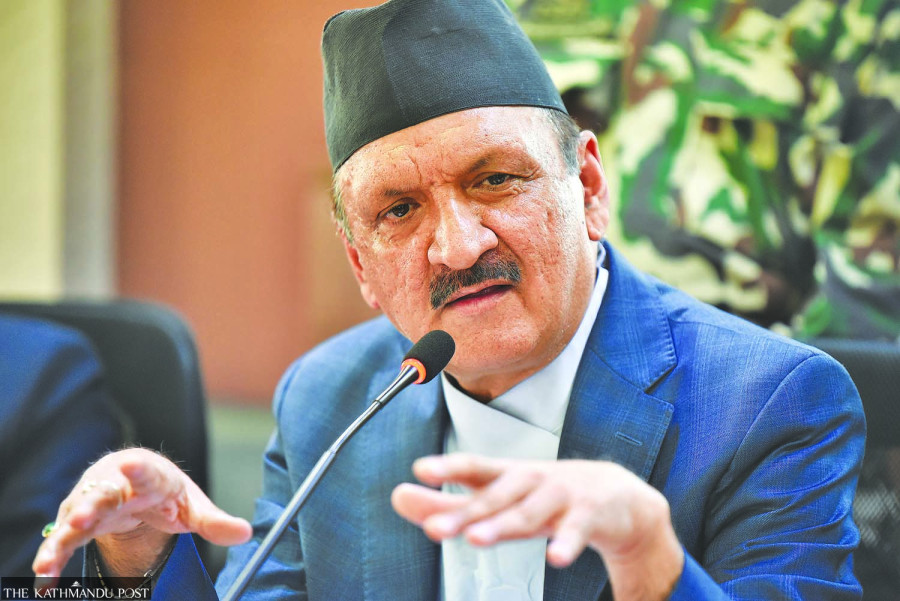Money
Tax on foreign trips for Nepalis will boost domestic tourism, finance minister says
Finance Minister Prakash Sharan Mahat says there is no truth in reports that have said the government has hiked taxes on EVs.
Krishana Prasain
Finance Minister Prakash Sharan Mahat, on Tuesday, clarified that the tax on foreign tour packages for the Nepali has been imposed for the first time to encourage them to go to places within their own country and prevent capital flight.
The Financial Bill has made a provision that Nepalis going abroad for a visit will have to pay as much as 5 percent tax on the total tour package.
Speaking at a post-budget presentation, Mahat said the tax policy on electric vehicles (EVs) has been rationalised.
“If you see the tax structure of fossil fuel-driven vehicles, it has been raised up to 300 percent. In contrast, tax on the EVs is nominal.”
Mahat said there is no truth in reports that have said the government has hiked taxes on EVs.
He said the EVs with more than 100cc capacity, have been taxed at a few percent. “The automobile dealers are selling EVs by keeping huge margins, which need to be reduced,” Mahat added.
The customs duty on EVs below 50cc is 10 percent.
For 50-100cc EVs, the custom and excise duties are 15 percent and 10 percent, respectively.
For EVs of 100cc-200cc, the customs and excise duties are at 20 percent each.
For the EVs of 200cc-300cc, the customs and excise duties are 40 percent and 45 percent, respectively and for 300cc EVs, the customs duty is 60 percent.
The government on Monday presented its annual financial plan worth Rs1.75 trillion for the next fiscal year 2023-2024, beginning mid-July.
The budget size for the next fiscal year is 2.37 percent smaller than the unrevised budget of the current fiscal year.
The government has allocated Rs1.14 trillion or 65.2 percent of the total budget for recurrent spending, which consists of regular expenses of salaries and allowances.
It has set aside Rs302 billion or 17.25 percent of the budget for capital spending, to build projects and critical infrastructures.
The government has earmarked Rs307 billion, or 17.55 percent of the total budget, for financing.
Mahat said the liability of loans has been increasing. He also said that the social security expenses cannot be minimised and that has been creating pressure on the availability of resources.
The government, through the budget, said that it will raise Rs1.24 trillion in revenues, Rs49.94 billion in foreign grants, Rs212 billion in external loans and Rs240 billion in internal loans.
“There is a need to change our working style to achieve the target envisaged by the budget,” said Mahat. “We have improved the revenue policy so that there is no tax evasion.”
“We are optimistic that the revenue collection will increase,” Mahat added. “On that basis, the revenue target has been set.”
“The budget for the current fiscal year has been presented quite differently as we have cut on unnecessary expenditure,” Mahat said.
“Regarding the implementation of the budget for the coming fiscal year, we have presented solutions in a point-wise manner by analysing the problems,” Mahat added.
He said the economic growth rate has been kept at 6 percent and that’s not ambitious. “We expect that a balanced fiscal policy and the coming monetary policy will help revitalise the economy,” said Mahat.




 9.83°C Kathmandu
9.83°C Kathmandu















